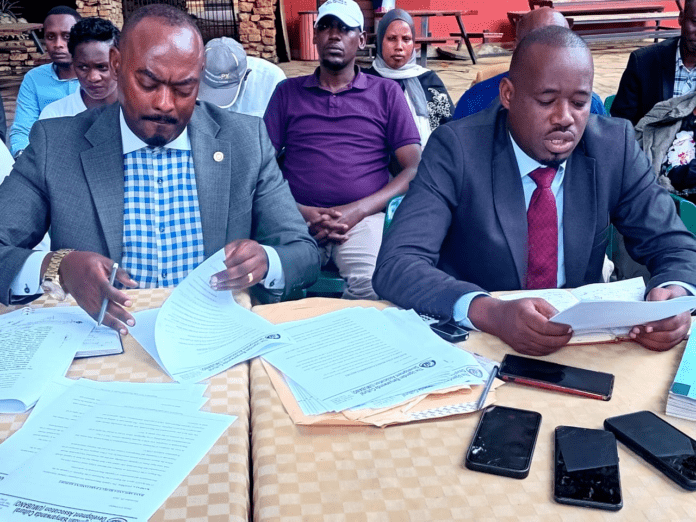Leaders of the Banyarwanda community in Uganda have vehemently rejected the Ugandan Parliament report on the government criteria for validating their legal citizenship in Uganda.
According to the chairperson of the Ugandan Banyarwanda Development Association (UMUBANO), Simon Kayitana, who doubles as a representative of the Banyarwanda community in the Buganda Lukiiko, the recommendations of the Parliament’s report are lazy and unbefitting of legislators who are paid to protect the rights of all citizens.
Kayitana was responding to the report of the Committee on Defence and Internal Affairs dated October 2024, which maintained that the Banyarwanda who cannot trace their lineage but are born in Uganda should seek other legal forms of Ugandan citizenship.
The report further recommended that any dissatisfied Munyarwanda should follow the dispute resolution process prescribed by the law if they disagree with the decisions of the Directorate of Citizenship and Immigration Control (DICIC) and the National Identification Registration Authority (NIRA).
“In our assessment as the UMUBANO, we find this report flawed and insensitive to the issues affecting the Banyarwanda community in Uganda. Consequently, we pray that the report be expunged from the official records of parliament and government,” Kayitana said.
While addressing the press members on Friday, November 29, 2024, at Speke Hotel in Kampala, Kayitana added that for Parliament to furnish itself with fair and accurate details of the persecution of Banyarwanda, they should conduct public hearings and country-wide field interviews rather than holding armchair investigations that produce false findings.
The legal advisor UMUBANO task force, Fred Mukasa Mbidde, requested the members of Parliament to stop politicizing citizen issues and be objective in their oversight role as representatives of the people.
“Members of Parliament should also be reminded that the biggest cause of armed conflicts in the world today is sectarianism, region, and ethnicity,” Mbidde said.
According to Mbidde, the solution to the injustices faced by the Banyarwanda community is to amend Article 10 of the constitution, which stipulates that for anyone to be a Ugandan by birth, one of their parents or grandparents must have been a member of any of the indigenous communities existing and residing within the borders of Uganda as of the first day of February, 1926.
Read Also: Ugandan-Banyarwanda Petition Parliament over Segregation, Harassment
However, Mbidde questioned the validity of the evidence maintained by the legislators when their predecessors existed several years ago before they were born.
“Why did the government deny the citizenship of Banyarwanda, yet the Buganda Kingdom, which is older than Uganda, recognized them as Ugandans?” he asked.
A population census conducted in the British protectorate of Uganda in 1959 listed the Banyarwanda as the sixth largest ethnic group, according to a paper by Edgar Mwine that was published by Konrad Adenauer Stiftung Uganda.
The constitution now limits citizenship by birthright only to persons whose parents or grandparents belong to one of the indigenous groups of Uganda. Meanwhile, Uganda has 56 tribes, and about nine Indigenous communities formally came to be recognized in the 1995 constitution amendment of 2005.















